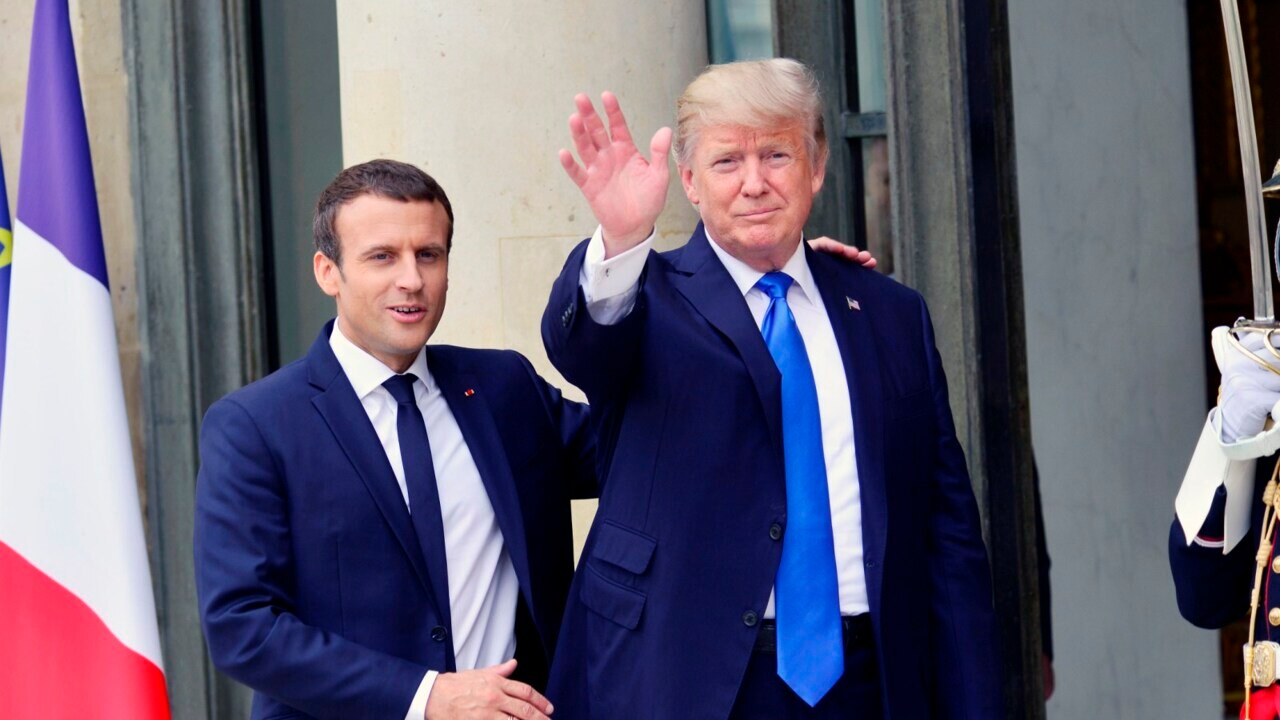Trump's Transgender Military Ban: A Critical Analysis Of The Rhetoric

Table of Contents
The Justification for the Ban: Deconstructing the Rhetoric
The justification for Trump's transgender military ban relied heavily on rhetoric rather than empirical evidence. Claims centered around maintaining military readiness and cohesion, cost concerns, and appeals to socially conservative ideologies. Let's examine these justifications more closely.
Claims of Military Readiness and Cohesion
A central argument used to support the ban was the purported negative impact of transgender service members on military readiness and unit cohesion. However, this claim lacked substantial empirical evidence. Instead, the arguments relied heavily on stereotypes and unsubstantiated assertions, ignoring the successful integration of transgender individuals in other militaries.
- Lack of data cited: Proponents of the ban failed to present credible data demonstrating a negative correlation between transgender service members and military effectiveness.
- Reliance on anecdotal evidence: The arguments often relied on isolated incidents or anecdotal evidence, which cannot be generalized to the entire population of transgender service members.
- Ignoring successful integration in other militaries: Many other countries successfully integrate transgender individuals into their armed forces without reporting significant negative impacts on readiness or cohesion. These examples were consistently overlooked in the rhetoric surrounding the ban.
Cost Arguments and Budgetary Concerns
Economic arguments were also used to justify the ban, focusing on the purportedly high costs associated with healthcare for transgender service members. However, this argument significantly underestimated the overall military budget and ignored the potential long-term economic consequences of the ban.
- Exaggerated cost estimations: The cost estimations associated with providing healthcare to transgender service members were often exaggerated and lacked transparency.
- Neglect of long-term economic consequences: The ban resulted in legal challenges, expensive court battles, and the loss of highly trained and skilled personnel – costs that far outweigh the relatively small expenditure on transgender healthcare.
- Opportunity cost of losing skilled personnel: The ban led to the loss of qualified and experienced personnel, representing a significant opportunity cost for the military.
The Role of Religious and Social Conservatism
The rhetoric surrounding the ban was significantly influenced by socially conservative ideologies and religious beliefs. Transgender identity was framed as a threat to traditional values, leading to the use of inflammatory language and divisive rhetoric.
- Religious objections as justification: Religious objections were frequently cited as a justification for the ban, despite the separation of church and state in the US.
- Use of fear-mongering tactics: The rhetoric employed fear-mongering tactics to create a sense of threat and division within the military community.
- Exploitation of existing social divisions: The debate around the ban was used to exploit existing social divisions and further polarize public opinion.
The Impact of the Ban: Real-World Consequences
Trump's transgender military ban had profound and lasting real-world consequences for transgender service members and the military as a whole.
Psychological and Emotional Distress
The ban resulted in significant psychological and emotional distress among transgender service members. Facing discharge or denied enlistment led to increased rates of suicide and self-harm. This negatively impacted the overall morale and well-being of the military community.
- Increased rates of suicide attempts: Studies showed a correlation between the ban and an increase in suicide attempts among transgender service members.
- Psychological trauma from discrimination: The discriminatory nature of the ban caused significant psychological trauma and further marginalized transgender individuals within the military.
- Eroding trust in military leadership: The ban damaged the trust and confidence transgender service members had in military leadership.
Legal Challenges and Court Battles
The ban faced numerous legal challenges, resulting in significant court battles. Landmark court decisions eventually overturned the ban, highlighting the ongoing struggle for transgender rights within the military.
- Landmark court cases: Several important court cases challenged the legality and constitutionality of the ban.
- Legal victories for transgender service members: These legal battles resulted in significant victories for transgender service members, affirming their right to serve.
- Ongoing litigation: Despite these victories, legal challenges and discussions surrounding transgender inclusion in the military continue.
Loss of Talent and Expertise
The ban led to a loss of skilled and experienced personnel, negatively impacting military readiness and operational effectiveness. This also highlighted broader implications for inclusivity and diversity within the armed forces.
- Loss of qualified medical professionals: The ban resulted in the loss of qualified medical professionals, specifically transgender doctors and nurses.
- Reduction in technical expertise: The ban also impacted the loss of personnel with specialized technical skills and expertise.
- Damage to military reputation: The ban damaged the reputation of the US military on the global stage, portraying it as less inclusive and forward-thinking.
Conclusion
The rhetoric surrounding Trump's transgender military ban reveals a complex interplay of unsubstantiated claims, prejudiced beliefs, and political opportunism. A critical examination exposes the lack of evidence supporting the justification for the ban, while highlighting the significant negative consequences for transgender individuals and the military as a whole. The legal battles and ongoing discussions surrounding this policy underscore the importance of continued scrutiny and advocacy for the rights of transgender service members. Understanding the rhetoric behind Trump's transgender military ban is crucial to fostering a more inclusive and equitable military and to ensuring that future policy decisions are informed by evidence and respect for human rights. Further research and public discourse are essential to fully grasp the lasting impact of this controversial policy and to prevent similar discriminatory measures in the future. Let's continue to advocate against harmful rhetoric surrounding Trump's Transgender Military Ban and fight for full inclusion in the armed forces.

Featured Posts
-
 Rumeysa Ozturk Tufts Student Released From Ice Custody Following Court Order
May 10, 2025
Rumeysa Ozturk Tufts Student Released From Ice Custody Following Court Order
May 10, 2025 -
 French Minister Urges Further Eu Action Against Us Tariffs
May 10, 2025
French Minister Urges Further Eu Action Against Us Tariffs
May 10, 2025 -
 Trump Tariffs Devastate Billionaire Net Worth Buffett Bezos Among Losers
May 10, 2025
Trump Tariffs Devastate Billionaire Net Worth Buffett Bezos Among Losers
May 10, 2025 -
 Broadcoms V Mware Deal An Extreme Price Hike Concerns At And T
May 10, 2025
Broadcoms V Mware Deal An Extreme Price Hike Concerns At And T
May 10, 2025 -
 Solve Nyt Strands Wednesday March 12 Game 374 Hints And Answers
May 10, 2025
Solve Nyt Strands Wednesday March 12 Game 374 Hints And Answers
May 10, 2025
